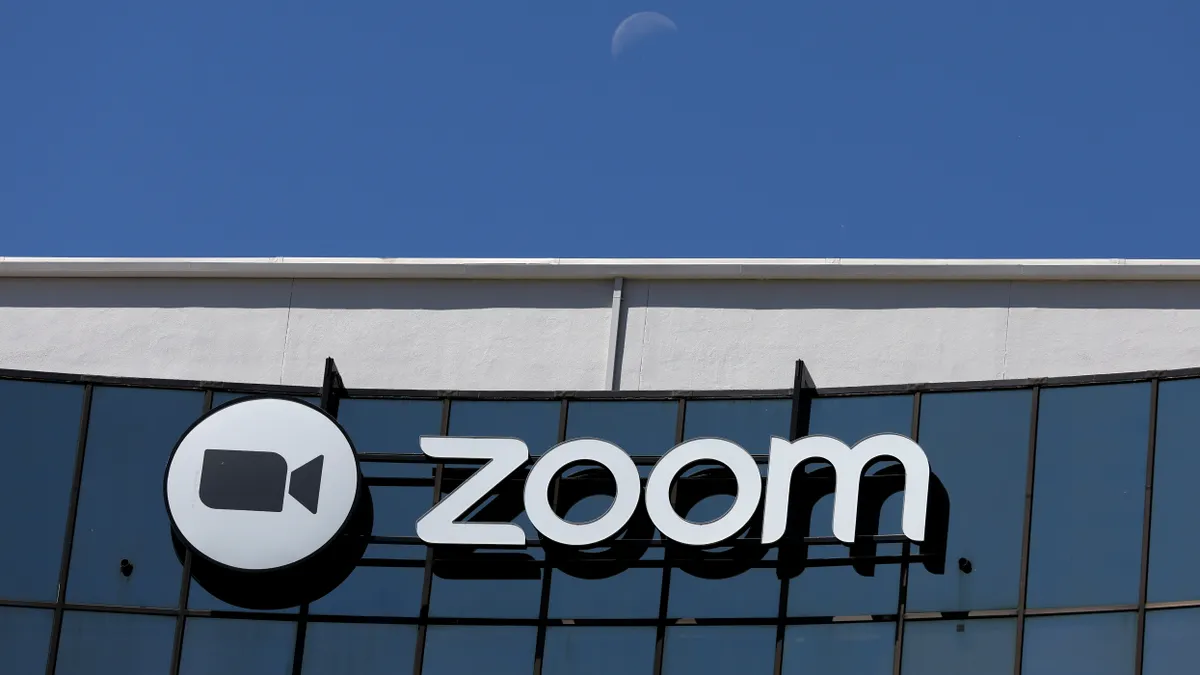Dive Brief:
-
The recent leadership chaos at artificial intelligence startup OpenAI underscores the risk of relying on just one technology vendor for a critical business function, according to Kelly Steckelberg, CFO of cloud-based video conferencing giant Zoom.
-
The closely-watched drama at OpenAI took a new surprise twist Wednesday, when the company announced that an agreement was reached to reinstate Sam Altman as its CEO. This came less than a week after Altman was suddenly ousted from the role, an event that grabbed national headlines and left the company’s future in doubt.
-
“I think it really highlights the need to ensure that you have multiple-source vendors for critical functions such as this, and that’s exactly the approach that we have,” Steckelberg said during a Tuesday CNBC interview.
Dive Insight:
The decision to reinstate Altman was announced in a statement posted on social media site X. The agreement also includes the installation of new board members such as economist Larry Summers, who served as head of the Treasury Department during the Clinton administration.
“We are collaborating to figure out the details,” the post said.
OpenAI announced on Friday that Altman was removed following a deliberative review process that found he was “not consistently candid in his communications with the board.” CTO Mira Murati was initially selected to serve as interim CEO. However, within days, the board changed course, tapping Emmett Shear, former CEO of Amazon subsidiary Twitch, for the interim role instead.
In another twist, Microsoft announced on Monday that it decided to hire Altman to lead a new AI research team at the company. Meanwhile, at OpenAI, the decision to remove Altman triggered a huge backlash among employees, who rushed to his support and called for the board’s resignation.
The instability at OpenAI has rattled its customers, causing some to look at other AI vendors, according to a CNBC report published on Tuesday.
Zoom is one of many companies across the technology industry and business community at large that have been betting heavily on the future of AI.
In a Gartner survey unveiled in May, 70% of corporate executives said their companies were investigating or exploring generative AI, which refers to tools capable of producing new content, such as text or images, based on what they’ve learned.
Nearly 20% of respondents said their organizations had AI projects in “pilot or production mode.” Another 45% of respondents reported that publicity around ChatGPT, a generative AI tool launched by OpenAI in November 2022, had prompted their companies to increase their AI investments.
This week, Zoom executives highlighted the benefits of such investments as the company reported total revenues of $1.1 billion for the third quarter of its fiscal 2024, an increase of about 3% year over year, and raised its profitability outlook for the full year to be in the range of $4.506 billion to $4.511 billion.
“AI is a critical component that stretches across all aspects of our platform and really helps drive, not only employee and customer engagement, but also love and retention,” Steckelberg told Fox Business News on Tuesday.
In September, Zoom unveiled its AI Companion tool, which allows paid users to access meeting summaries and assists them with composing chat responses, among other features. The service has already been enabled by over 220,000 accounts, Steckelberg said.
In the CNBC interview, the CFO said Zoom has adopted a “federated approach” to deploying AI technology, which means the company works with several models “to ensure that we get the best performance for our customers.”
Besides using OpenAI as an AI vendor, Zoom also works with Meta Platforms and Anthropic, in addition to using its own model, she said.















